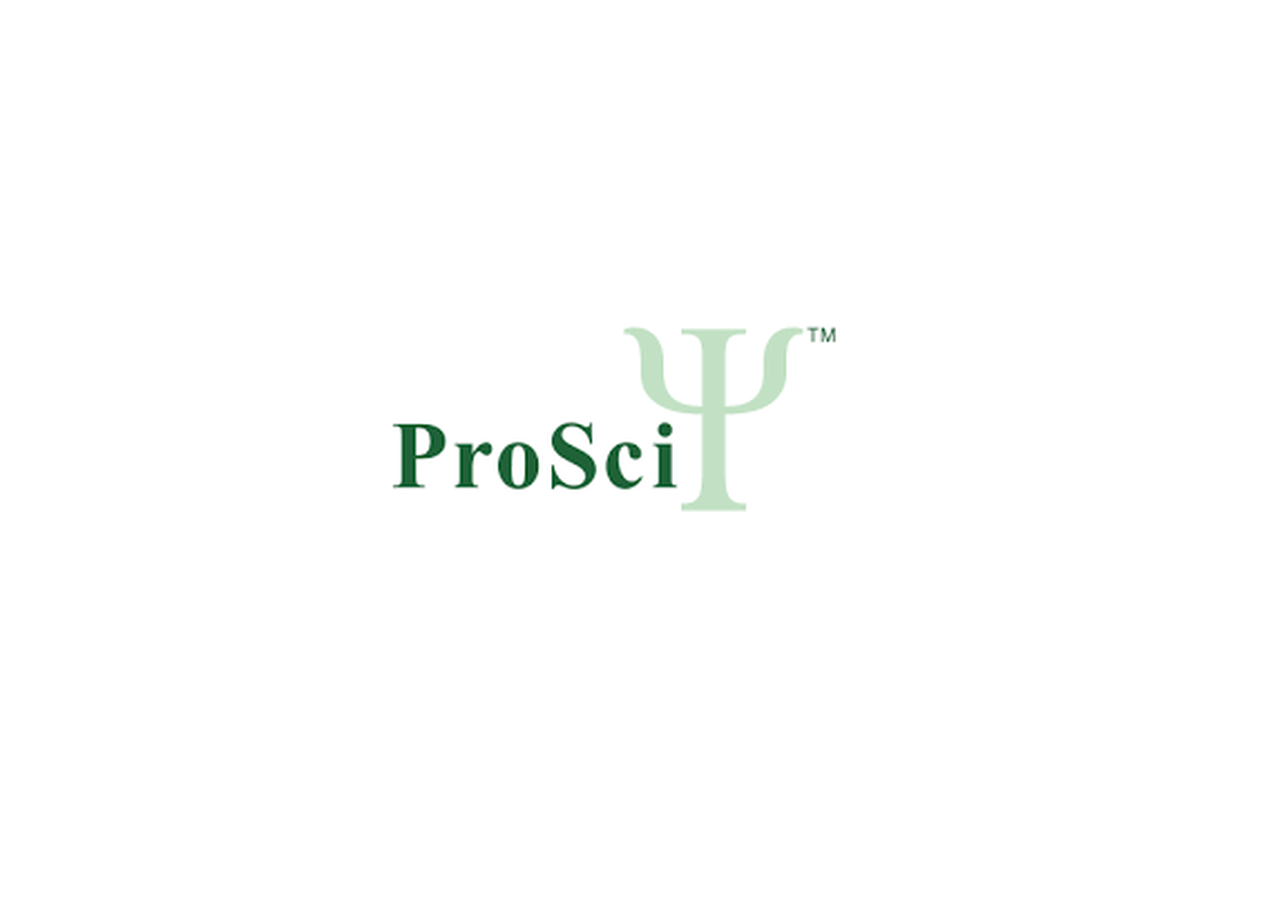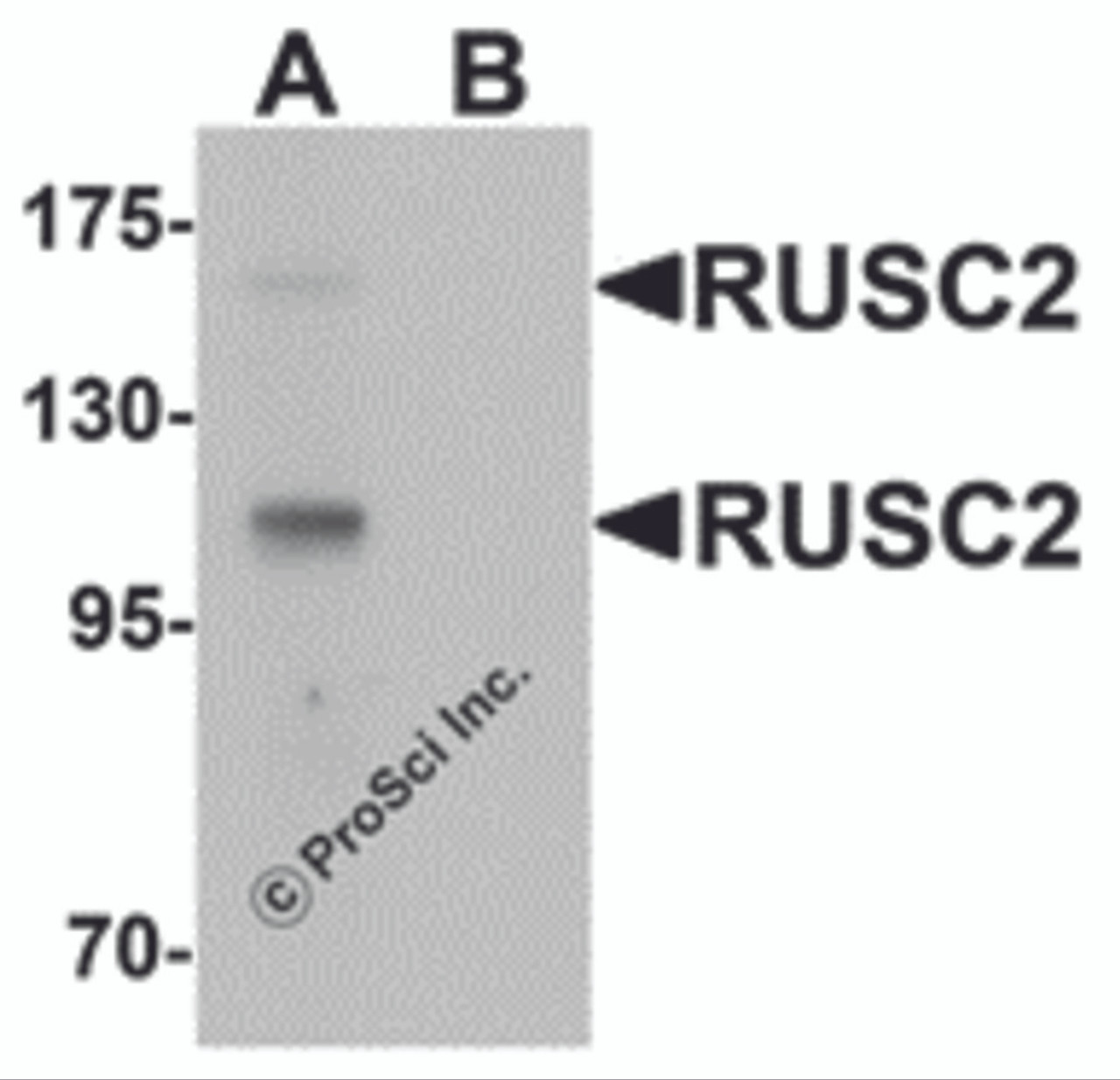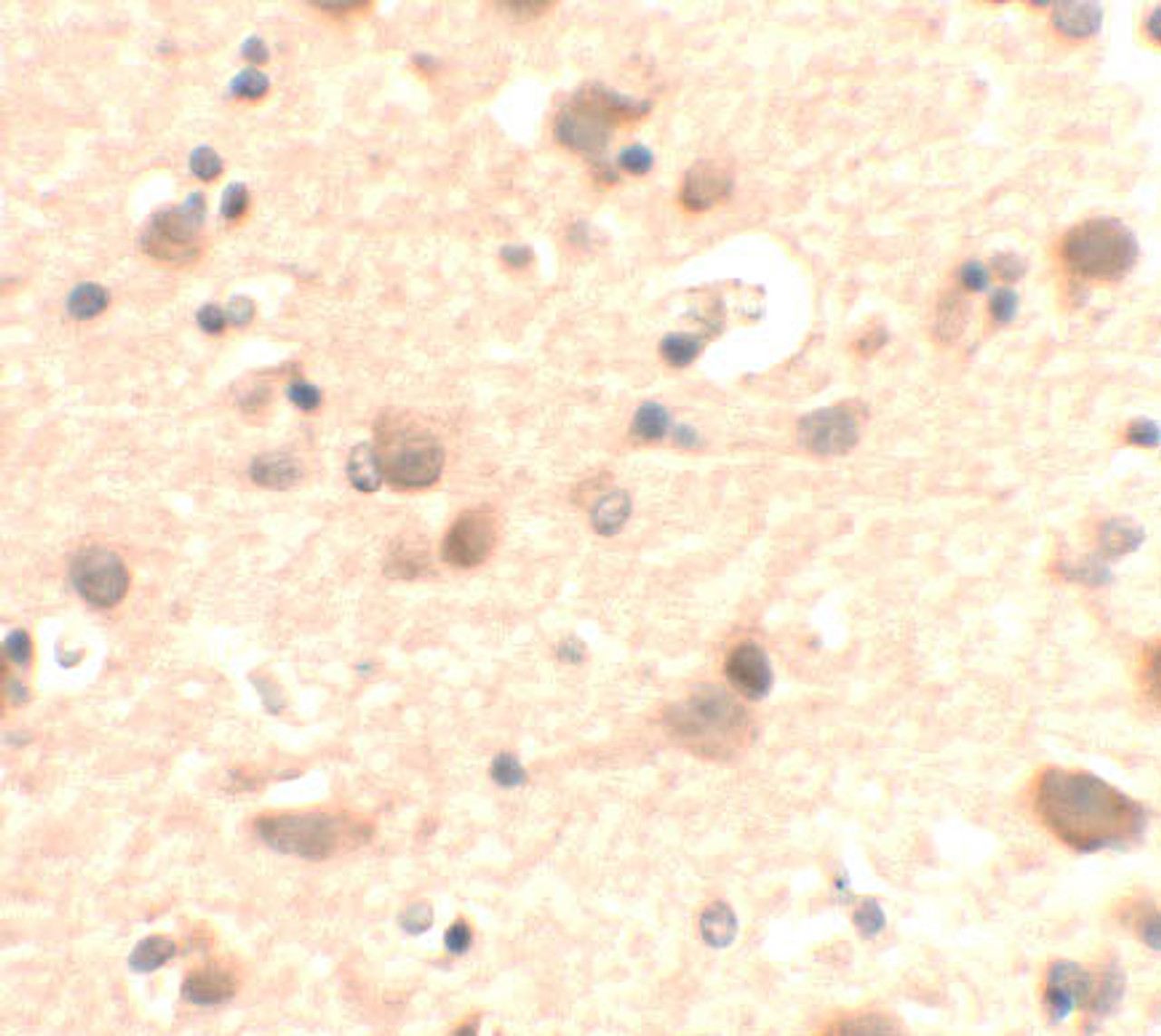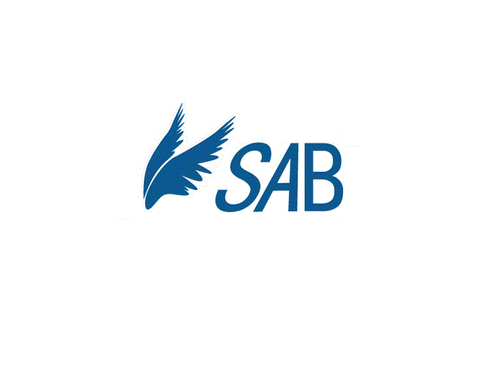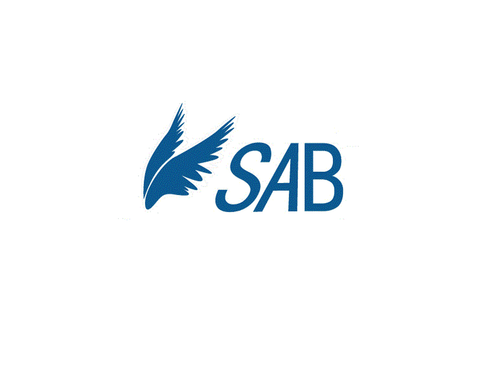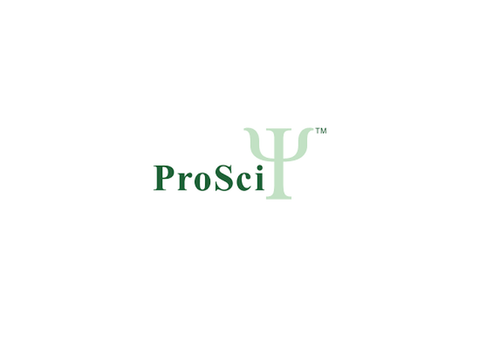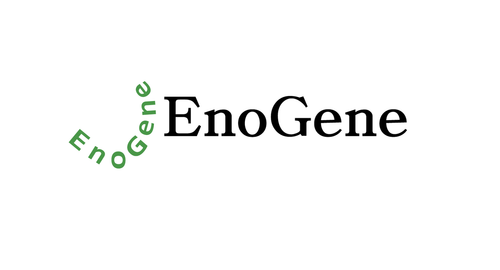Product Description
RUSC2 Antibody | 6659 | ProSci
Host: Rabbit
Reactivity: Human, Mouse
Homology: N/A
Immunogen: RUSC2 antibody was raised against an 18 amino acid synthetic peptide from near the amino terminus of human RUSC2.
The immunogen is located within amino acids 70 - 120 of RUSC2.
Research Area: Signal Transduction
Tested Application: E, WB, IHC-P, IF
Application: RUSC2 antibody can be used for detection of RUSC2 by Western blot at 1 μg/mL. Antibody can also be used for immunohistochemistry starting at 5 μg/mL. For immunofluorescence start at 20 μg/mL.
Antibody validated: Western Blot in human samples; Immunohistochemistry in human samples and Immunofluorescence in human samples. All other applications and species not yet tested.
Specificiy: At least three isoforms are known to exist; this antibody will detect all three isoforms. This antibody is predicted to not cross-react with RUSC1.
Positive Control 1: Cat. No. 1220 - SK-N-SH Cell Lysate
Positive Control 2: Cat. No. 10-301 - Human Brain Tissue Slide
Positive Control 3: N/A
Positive Control 4: N/A
Positive Control 5: N/A
Positive Control 6: N/A
Molecular Weight: N/A
Validation: N/A
Isoform: N/A
Purification: RUSC2 Antibody is affinity chromatography purified via peptide column.
Clonality: Polyclonal
Clone: N/A
Isotype: IgG
Conjugate: Unconjugated
Physical State: Liquid
Buffer: RUSC2 Antibody is supplied in PBS containing 0.02% sodium azide.
Concentration: 1 mg/mL
Storage Condition: RUSC2 antibody can be stored at 4˚C for three months and -20˚C, stable for up to one year. As with all antibodies care should be taken to avoid repeated freeze thaw cycles. Antibodies should not be exposed to prolonged high temperatures.
Alternate Name: RUSC2 Antibody: Iporin, KIAA0375, Iporin, Interacting protein of Rab1
User Note: Optimal dilutions for each application to be determined by the researcher.
BACKGROUND: RUSC2 Antibody: RUSC2, also known as Iporin, shares with the related protein RUSC1 a common domain structure of RUN, leucine zipper and SH3 domain in addition to over 30% amino acid identity. RUSC2 is a rab1-interacting protein that also interacts with GM130, another rab1-interacting protein. RUSC2 interacts with specific rab1 isoforms with different rab-binding specificity. It has been suggested that RUSC2 may function as a link between the targeting of ER derived vesicles triggered by the rab1 GTPase and a signaling pathway composed of proteins containing SH3 and/or poly-proline regions.
 Euro
Euro
 USD
USD
 British Pound
British Pound
 NULL
NULL

